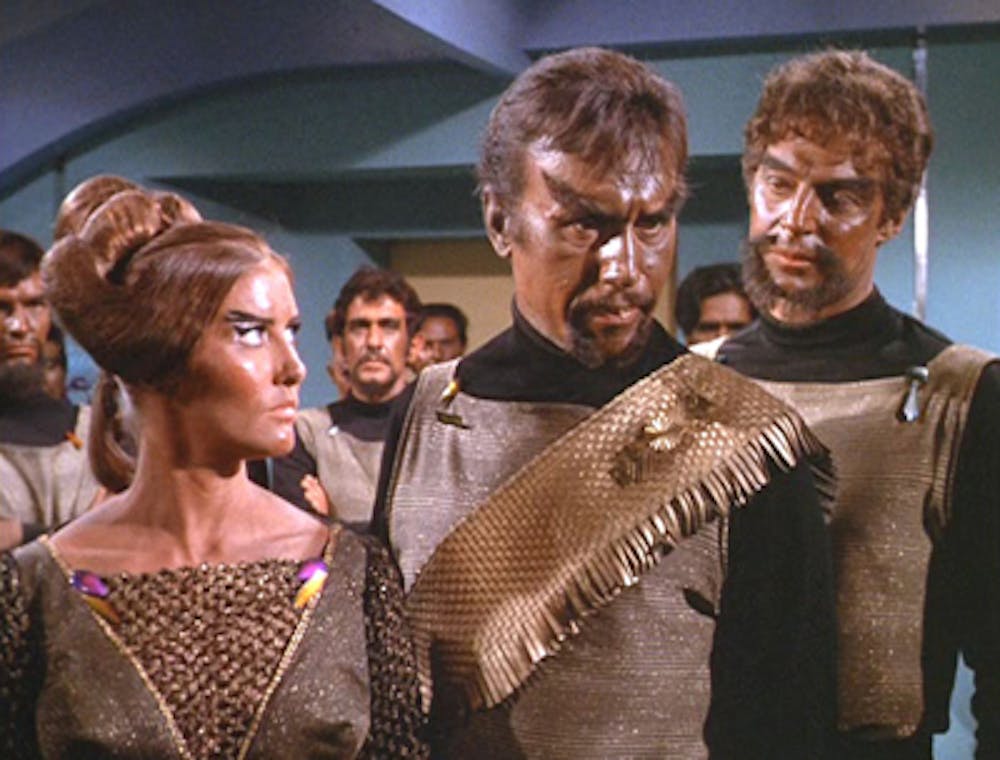Typically, I'm the sort of cultural consumer who runs at everything skeptically, is rarely very pleased and finds it almost sinful to consider compromising the complexity of a lengthy, brilliant source material for the sake of introducing it to a wider audience. The simple reason is because most of these attempts trip right over themselves, because stretching any idea to fit to every taste leaves it bland. No one will necessarily complain if they're fed bland chicken, but there's no heart and soul to be found in it. My opinion of the film adaptation "Watchmen" his already on the blog, an opinions birthed entirely from what I think was a blatant misunderstanding of the comic and the transformation of it into a big, dumb, sex-laden adventure.
So to continue with the nerdy theme, let's run over the new "Star Trek" film, which I absolutely adored. Although it could have been released with the subtitle, "Attack of the Lens Flare," it accomplishes what few remakes do. It understands what made the original work, and successfully executes on that comprehension.
The key to any written work is the characters (a line that makes me feel like a high school English teacher.) It's ultimately that simple, if the audience can't be convinced to be at least mildly interested in the folks on the screen or on the page, they'll jump off the ship. Biting social commentary? A grand plot that runs through the ages? Beautiful cinematography? Explosions? They're all secondary. Commentary must be delivered by believable sources folks can relate to, otherwise it's merely heavy-handed and ham-fisted. Stories are just a composition of sentences without characters to flesh them out. An old man goes out to sea and catches a big fish. A poor southern family sets off to bury its mother. This king has some lame daughters and so they kick him off of the throne. None of that sounds particularly interesting, because there's no reason we should care about anything that was previously listed.
The new "Star Trek" doesn't have the best plot in the world, it, like anything that involves time travel, has some holes in it. And it lacks the same high-minded intellectualism that marked the Star Trek series at its best. But throughout the two-plus hours, I was persistently interested in what was going on, and at no point did I shift my weight in the seat, clear my throat, and think, "Geez...I think I've been here forever."
The beauty of "Star Trek" is that it understands why people circled around the original series in the first place. I doubt there's a single Trekkie who got into the series solely because they wanted to understand the intricacies of warp drive technology, or the intricacies or intergalactic diplomacy. Star Trek has endured for decades because Captain Kirk will always be headstrong jerk who is always loyal to his friends and Spock constantly battles between logos and ethos. Even the supporting cast, who in clumsy hands fall into mere stereotypes, are dynamic and at times compelling.
J.J Abrams' choice of his ensemble of intriguing, instantly-watchable characters can't be praised enough. There weren't moments where the audience groans and sighs, "Ugh, not him again," or wonders why so and so is still even in the plot (I wish I could say the same for another project inaccurately tied to Abrams, "Lost.") Sure, there were alterations to the characters. Kirk is even more of a jerk, Spock has quite a temper and everyone's younger and more quip-filled. But it all works for the best, because while the struggle the Enterprise crew finds itself in isn't the best to grace the series (though Nero is definitely a cut above most Star Trek movie villains) those struggling are still carrying the core of what made Star Trek work in the first place. People. (Well, people and tribbles.)
In short, "Star Trek" is bigger, stupider and more for the common man than the series has been for over a decade. But it's also far more rewarding and entertaining than the series has been during the same time frame. I'll stand up for the "Star Trek" re-boot. It proves that, even though beefing up the drama and intellectual content of previously vapid franchises can pay off (a la Batman and James Bond) sometimes the fat needs to be trimmed, baggage has to be checked and the entire theater doesn't need to know Klingon.


